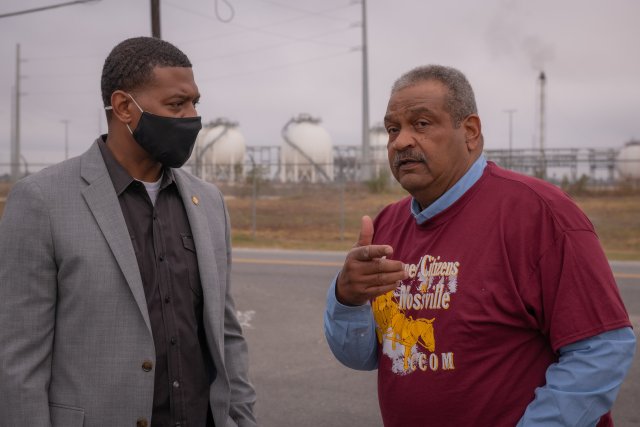|
Listen to this article here
Getting your Trinity Audio player ready...
|
Judge James D. Cain ruled against the Environmental Protection Agency (EPA), Department of Justice (DOJ), and residents of Cancer Alley, a nearly 100-mile stretch between Baton Rouge and New Orleans littered with hundreds of petrochemical operations. The region has disproportionately high rates of cancer and other health risks in the predominately Black parishes.
Citing government overreach, the judge sided with Gov. Jeff Landry who first filed the suit against the EPA last year. The EPA claimed there are disparate impacts of air pollution from chemical facilities. Title VI states that no person on the basis of race shall be discriminated against under any program or activity that receives federal funding.
Louisiana government asserted, “The EPA has weaponized Title VI as a blanket grant of authority to veto any and all permitting decisions that offend its vision of environmental justice and ‘equity.’” Cain wrote in the decision, “Pollution does not discriminate.”
While pollution may not discriminate, those in power who decide where polluting facilities are located might.
Journey to environmental justice
In 2022, the EPA jumpstarted a new office to promote environmental justice and civil rights. Despite long-standing awareness of the issues, little has been done to rectify the community’s unjust treatment in Cancer Alley.
EPA Administrator Michael Regan participated in the Journey to Justice tour where he met with several communities facing environmental injustice. After meeting with Louisiana residents, the EPA made several investments in local communities. This included the allocation of $600,000 for a mobile air monitoring system and increased inspections of Mossville chemical facilities.

Earlier this month, the White House blocked a permit that would allow the construction of a natural gas terminal. The liquified natural gas export terminal would be the largest in the country but after pushback, President Biden tabled the project.
Rise St. James is a grassroots organization that has been fighting against petrochemical companies in St. James Parish. Working with local groups, including Louisiana Bucket Brigade, Healthy Gulf, and Sunrise Movement New Orleans, they have spearheaded efforts to promote the health and safety of Louisiana residents.
Worsening problems in Cancer Alley
Louisiana’s state government recently permitted Formosa Plastic to build a new petrochemical facility, despite severe pushback from residents and environmental groups. On January 9, the appellate court ruled in favor of the Louisiana Department of Environmental Quality. Formosa Plastics now has a permit to build the country’s largest petrochemical complex in St. James Parish.
Response from local groups
Sharon Cayette Lavigne, Founder & Director of RISE St. James provided the following statement about Formosa’s newly issued permit.
“We are still quite taken aback by the court’s decision. Louisiana once again puts polluters ahead of its people. But this matter goes beyond our state; we’re standing on the frontlines of climate change, representing the true struggle for climate and environmental justice in America.”
She continues, “Living next to Formosa Plastics, with the perpetual risk to our health, livelihood, security and hard-earned property is beyond our imagination. Formosa Plastics would wipe the 5th district of St. James off the map, adding to the number of historically black communities that have become extinct due to the intrusion of petrochemical industries. In 2021, the Army Corps of Engineers ordered an environmental impact study to assess cumulative impacts; For the time being, we plan to actively engage with the Army Corps of Engineers and request to get involved in drafting the study.
With unwavering faith, we assert confidently that Formosa Plastics will not establish a presence in St. James Parish under our watch.”
Before the court’s decision, the EPA backed the Army Corps of Engineers’ request for a more in-depth environmental impact report. The report will include a full analysis of the environmental, climate, public health, and cultural impacts of the plastics facility.
Agencies have widely dismissed environmental protestors in their plight against pollution.
In 2020, authorities arrested two environmental activists for leaving plastic pellets on the doorstep of chemical lobbyists. Although polluting interest groups eventually dropped the charges, it shows the lengths they will go to silence the voices of residents.
Related Stories


